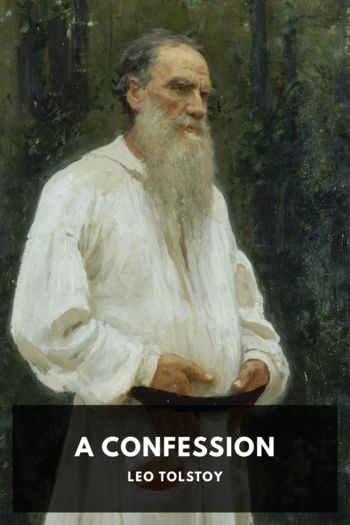Short Fiction by Leo Tolstoy (book reader for pc TXT) 📕

- Author: Leo Tolstoy
Book online «Short Fiction by Leo Tolstoy (book reader for pc TXT) 📕». Author Leo Tolstoy
Suddenly the most fearful roar strikes not only your ears but your whole being, and makes you shudder all over. It is followed by the whistle of the departing ball, and a thick cloud of powder-smoke envelops you, the platform, and the moving black figures of the sailors. You will hear various comments by the sailors concerning this shot of ours, and you will notice their animation, the evidences of a feeling which you had not, perhaps, expected: the feeling of animosity and thirst for vengeance which lies hidden in each man’s soul. You will hear joyful exclamations: “It’s gone right into the embrasure! It’s killed two, I think … There, they’re carrying them off!” “And now he’s riled, and will send one this way,” someone remarks; and really, soon after, you will see before you a flash and some smoke, the sentinel standing on the breastwork will call out “Ca-n-non,” and then a ball will whiz past you and squash into the earth, throwing out a circle of stones and mud. The commander of the battery will be irritated by this shot, and will give orders to fire another and another cannon, the enemy will reply in like manner, and you will experience interesting sensations and see interesting sights. The sentinel will again call “Cannon!” and you will have the same sound and shock, and the mud will be splashed round as before. Or he will call out “Mortar!” and you will hear the regular and rather pleasant whistle—which it is difficult to connect with the thought of anything dreadful—of a bomb; you will hear this whistle coming nearer and faster towards you, then you will see a black ball, feel the shock as it strikes the ground, and will hear the ringing explosion. The bomb will fly apart into whizzing and shrieking fragments, stones will rattle into the air, and you will be bespattered with mud.
At these sounds you will experience a strange feeling of mingled pleasure and fear. At the moment you know the shot is flying towards you, you are sure to imagine that this shot will kill you, but a feeling of pride will support you, and no one will know of the knife that is cutting your heart. But when the shot has flown past and has not hit you, you revive, and, though only for a moment, a glad, inexpressibly joyous feeling seizes you, so that you feel some peculiar delight in the danger—in this game of life and death—and wish that bombs and balls would fall nearer and nearer to you.
But again the sentinel, in his loud, thick voice, shouts “Mortar!” again a whistle, a fall, an explosion; and mingled with the last you are startled by the groans of a man. You approach the wounded man just as the stretchers are brought. Covered with blood and dirt he presents a strange, not human appearance. Part of the sailor’s breast has been torn away. For the first few moments only terror, and the kind of feigned, premature look of suffering common to men in this state, are to be seen in his mud-besprinkled face; but when the stretcher is brought, and he himself lies down on it on his healthy side, you notice that his expression changes. His eyes shine more brightly, his teeth are clenched, with difficulty he raises his head higher, and when the stretcher is lifted he stops the bearers for a moment, and, turning to his comrades, says with an effort in a trembling voice, “Forgive me, brothers!”33 He wishes to say more, something pathetic, but only repeats, “Forgive me, brothers!” At this moment a sailor approaches him, places the cap on the head the wounded man raises, and then quietly, placidly swinging his arms, returns to his cannon.
“That’s the way with seven or eight every day,” the naval officer remarks to you, answering the look of horror on your face, and he yawns as he rolls another yellow cigarette.
So now you have seen the defenders of Sevastopol where they are defending it, and, somehow, you return with a tranquil, heightened spirit, paying no heed to the balls and bombs whose whistle accompanies you all the way to the ruined theatre. The principal, joyous, thought you have brought away with you is a conviction of the strength of the Russian people; and this conviction you gained, not by looking at all those traverses, breastworks, cunningly interlaced trenches, mines, cannon, one on top of the other, of which you could make nothing; but you have received it from the eyes, words, and actions—in short, from seeing what is called the “spirit”—of the defenders of Sevastopol. What they do is all done so simply, with so little effort, that you feel convinced they could do a hundred times as much. … You understand that the motive which actuates them is not that petty ambition or forgetfulness which you yourself experienced, but some stronger feeling, which has made of them beings who live quietly under the flying balls, facing a hundred chances of death instead of the one others are subjected to—and this amid conditions of continual toil, lack of sleep, and dirt. For the sake of a cross, or promotion, or because of a threat, men could not accept such terrible conditions of life: there must be some other and higher motive power.
It is only now that the tales of the early





Comments (0)